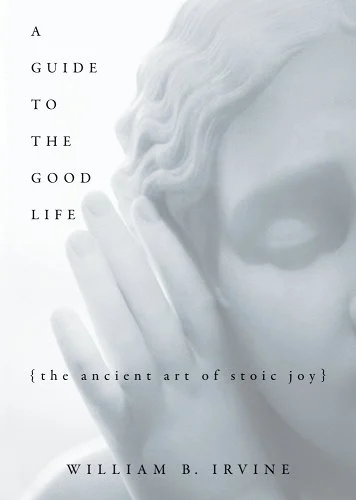I wrote this book with the following question in mind: If the ancient Stoics had taken it upon themselves to write a guidebook for twenty-first-century individuals—a book that would tell us how to have a good life—what might that book have looked like? The pages that follow are my answer to this question.
~ William B. Irvine, from A Guide to the Good Life
slip:4a2gu1a.
There are a lot of books and ideas that get put forward when talking about Stoicism. This book is the best place to start. I wish I had found it much closer to when it was written in 2009. I wish it had been written 30 years sooner, and that I’d found it back then.
The Stoics’ interest in logic is a natural consequence of their belief that man’s distinguishing feature is his rationality. Logic is, after all, the study of the proper use of reasoning.
Ibid p33
[…] when the Stoics counsel us to live each day as if it were our last, their goal is not to change our activities but to change our state of mind as we carry out those activities. In particular, they don’t want us to stop thinking about or planning for tomorrow; instead they want us, as we think about and plan for tomorrow, to remember to appreciate today.
Ibid p71
[W]hen Stoics contemplate their own death, it si not because they long for death but because they want to get the most out of life. As we have seen, someone who thinks he will live forever si far more likely to waste his days than someone who fully understands that his days are numbered, and one way to gain this understanding is periodically to contemplate his own death.
Ibid p200
ɕ
